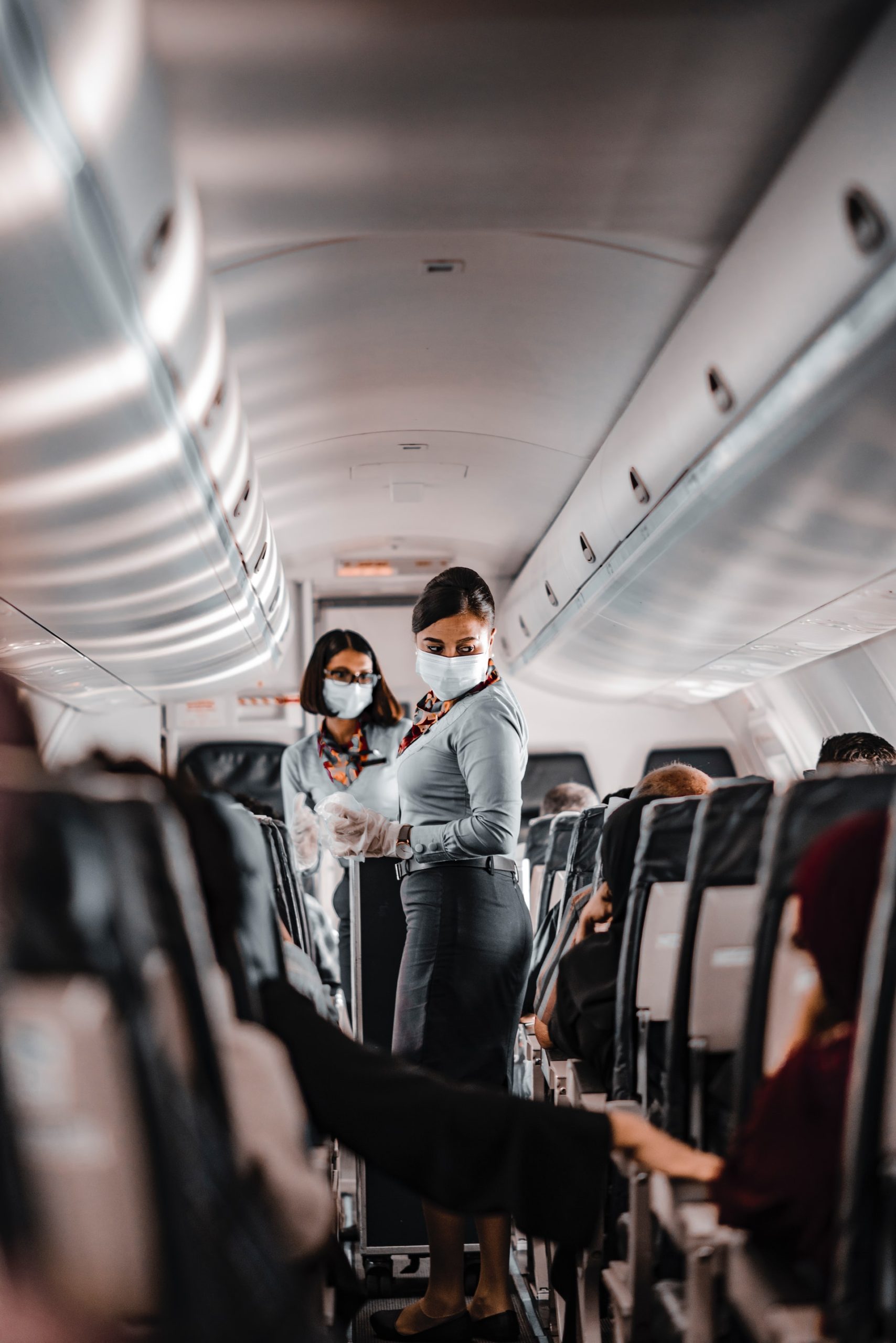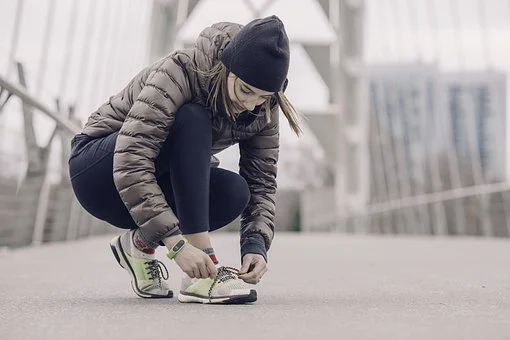Traveling isn’t the same as it was pre-pandemic and we continue to see changes to restrictions and recommendations nearly round the clock. However, with rising vaccination rates in the U.S., travel is reopening more and many people are feeling more confident to hit the road or air this winter.
With the unpredictable nature of COVID and the different strains circulating, it’s hard to know for sure how to prepare or what to do when you want to travel. Whether you choose to get vaccinated or not, we’ll tell you everything you need to know to stay safe all season long as you embark on domestic travel during COVID.

Basics of Domestic Travel During COVID
Whether you’re driving or flying, vaccinated or not, these are the basic things to remember to bring with you to protect you from not just COVID, but any virus that traveling will inevitably expose you to.

1. It’s important to wear the best mask you can – ideally an N95 or something similar. Wearing a mask over your nose and mouth is required on planes, as well as any indoor U.S. transportation hubs such as airports, buses, and train stations. Be sure to pack a few extras or even disposable masks just in case.
2. Aside from your mask, always carry a travel size hand sanitizer with you because thoroughly washing your hands isn’t always an option. Pack one with at least 60% alcohol.
As you travel, you’ll come into contact with many frequently touched surfaces such as handrails, elevator buttons, and kiosks. If you can help it, avoid touching your eyes, nose, and mouth and refrain from eating while on public transportation so you don’t have to mess with your mask.
3. The Transportation Security Administration (TSA) has increased cleaning and disinfecting of surfaces, equipment, and bins. Airlines are also thoroughly disinfecting the planes but out of an abundance of caution, you can bring wipes on the go to clean your seat, arm rests, and tray.
Don’t forget to clean your phone, too! You’d be surprised by how dirty it actually is.
4. Although you don’t have to worry about your proof of vaccination as much if you’re traveling domestically, it’s still a good idea to carry it just in case a public space or business requires it.
Air Travel During the Pandemic
The biggest downside of flying during the pandemic is it makes it difficult to maintain distance from others. Spending time in security lines and airport terminals can bring you in close contact with others; however, because of how the air is circulated and filtered throughout the plane, viruses don’t tend to spread as easily.
Recommendations for Vaccinated People
Currently, the CDC states that you do not need to get tested before or after your trip if you are fully vaccinated and traveling within the U.S. It’s also not recommended to quarantine after you return.
Recommendations for Unvaccinated People
Although it’s not required, the CDC recommends testing 3 to 5 days before you travel and 3 to 5 days after travel in order to reduce the spreading of the virus. Further, it’s recommended to reduce nonessential activities for up to 10 days upon your arrival even if you do test negative. Test with an easy at home test and skip the appointments.
If you’re flying with children, check the airline’s requirements. Some require masks for kids 5 and older, though sometimes it’s two or older.
Car Travel During the Pandemic
Maybe you prefer to drive so you can have more control over your environment and that’s ok, too. There are certainly fewer things to worry about and one bonus is your ability to pack larger quantities of hand sanitizer and disinfecting wipes if you choose.
Before you hit the road, consider packing food and water to limit the amount of stops you have to make for restaurants or grocery stores. If you choose to pick up a meal, opt for drive-thrus or restaurants that offer curbside service. Further, when you stop for gas, use a disinfectant wipe on handles or buttons before touching them and use hand sanitizer when you’re all done.
Staying Safe in Hotels
Checking in to a hotel, Airbnb, or any other lodging service can be nerve-racking due to the high volume of guests before you. Luckily, these industries are upping their game when it comes to cleaning. If you’re staying in a hotel, check any major chain’s website to inquire about their enhanced cleaning procedures, contactless payment methods, social distancing measures, etc.
Other vacation rentals require cleaning crews to wear masks and gloves when cleaning. They also build in a waiting period between guests.

Again, there’s nothing wrong with disinfecting high touch surfaces upon arrival like doorknobs, light switches, countertops, phones, remote controls, faucets, etc. This is especially smart if you’re unvaccinated or considered high risk.
Helpful Links to Check Updated Restrictions & Requirements
There are a ton of varying rules to sort through when planning for domestic travel during COVID. This means you’ll have to do specific research based on your desired destination before getting your heart set. Here are some good places to start:
1. Skyscanner provides a very helpful list of state-by-state restrictions as well as restrictions by country and flight cancellation information. Their interactive color-coded global map helps you easily identify severity of any travel restrictions and what areas are partially open or closed.
2. App in the Air is great for staying updated on ongoing travel restrictions. It also helps you sort airlines by their policies and informs you on their health checks.
3. Of course, you can always check the CDC for travel recommendations by destinations.
4. Finally, if you’re traveling abroad then the best place to start is The Points Guy and Travel Off Path. These resources break down current travel rules for every country in the world.
One of the best things you can do when traveling during this time is to maintain a flexible mindset. Destinations and attractions are constantly closing and reopening so be sure to stay updated as your travel date nears and look into travel insurance to cover not only COVID related issues, but winter storm setbacks.





